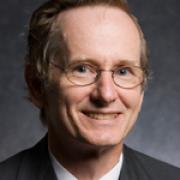High-frequency traders are OK – according to a professor at the University of Maryland.
Albert “Pete” Kyle, the Charles E. Smith Chair Professor of Finance at the Smith School, University of Maryland said at a recent financial regulation conference in Australia that low-latency traders provide a useful service but rig the system when they extract tolls from investors. “They are like a troll under a bridge who charges travelers something extra when they cross to the other side,” he was quoted as saying in the Brisbane Times.

The conference was held in the wake of the recent ITG settlement where it paid an $18 million fine, a record, to settle charges it misused its “dark pool” clients’ confidential information to implement high-frequency trading strategies.
According to market projections, HFT accounts for more than half of U.S. equity trading. HFT in Australia in contrast represents about 27 per cent of trading activity.
Maryland’s Kyle said that while he believed the U.S. equity market is not rigged as alleged by Michael Lewis in his book Flash Boys, what is rigged is the tax-effect on investors.
During the Centre for International Finance and Regulation conference Aug. 11-12, 2015, in Sydney, Kyle said the “most logical” solution for markets involves the random processing of orders, rather than options such as a minimum resting time or batch auctions.
Kyle also said high-frequency trading technology is becoming more like a commodity.
Kyle added that while the technology or latency “arms race” is almost over. He anticipates fund management firms to adopt the technology toward reducing their broader equity market transaction costs.
In Australia, Mr Kyle said HFT was somewhat more limited because the equities market was more concentrated compared to fragmented markets in the U.S. and Europe.
“Being centralized is potentially an advantage if you have the appropriate regulations and rules,” he said. The Australian Securities Exchange and Chi-X Australia are the main local exchange operators.



